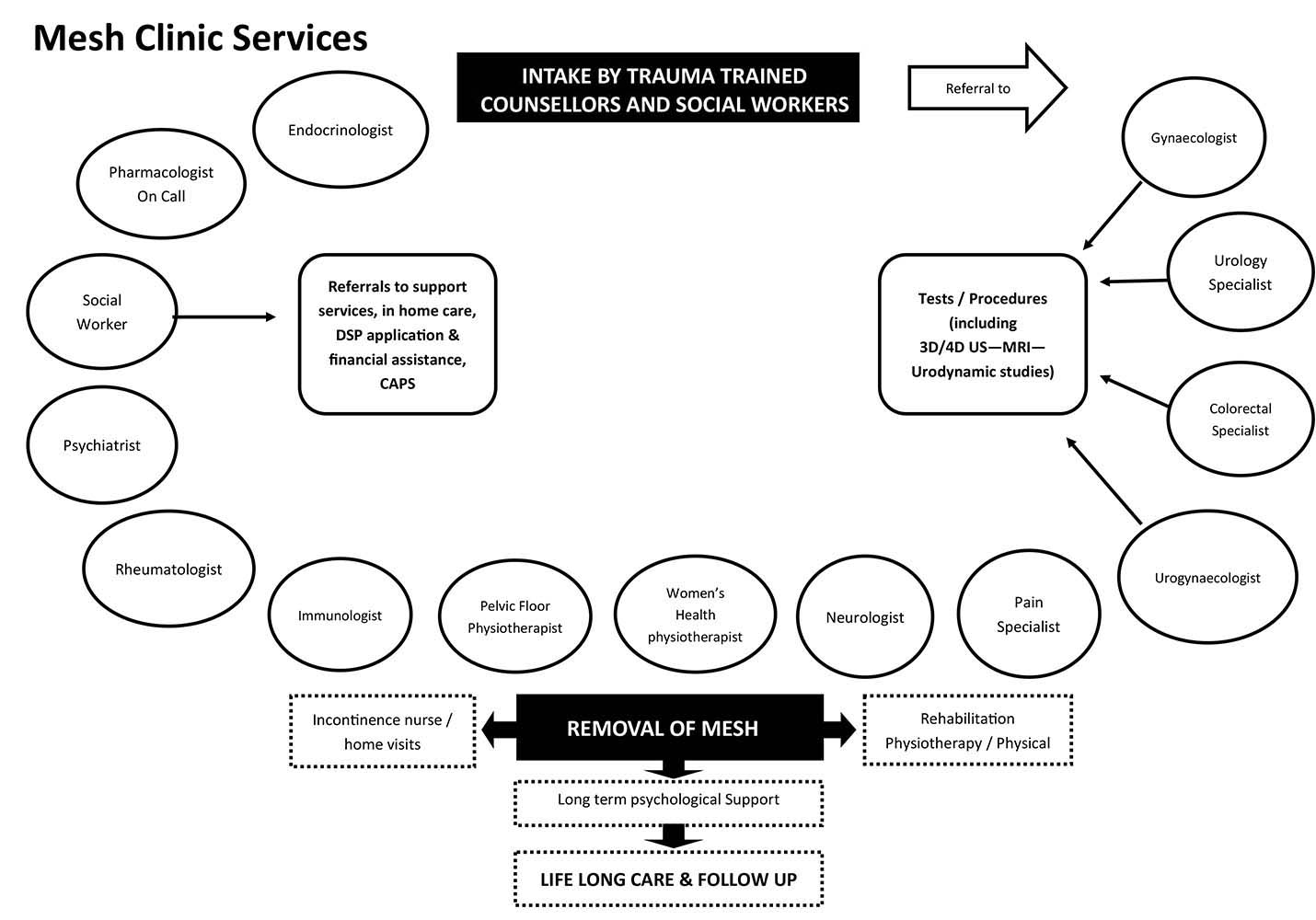Goals
- Create a safe space for mesh injured women.
- Help and support women emotionally and practically.
- Re-establish mesh injured women’s faith in the medical system.
- Offer a high standard of transparent care at all times.
- Care is to be tailored to the individual needs of each woman.
- Develop a consistent programme to be replicated in each State/Territory across Australia.
- Acknowledge the many losses associated with mesh injury – health & wellbeing, partners & family members, jobs and careers, the financial hardship suffered, loss of sanity and the need to find some peace and acceptance.
Intake
In order to engage women, trauma trained counsellors/social workers need to do intake, preferably in the home of a woman to capture an understanding of her life and to reduce the trauma associated with attending medical appointments and hospitals and allow space for a woman to “tell her story” via telephone or telehealth. N.B. Some mesh injured women are housebound.
All Clinics require the following:
Services
- 3D4D ultrasound diagnostics to be performed in real time with treating specialist present.
- Continence aids, prescriptions & mobility and assistance aids supplied & funded.
- Mesh alternatives available (pessary, Botox etc.).
- Pain management services.
- Native tissue repair surgery available post removal.
- Interstate travel funding – patient assisted transport provided prior to attendance.
Clinicians
ALL health care professionals require the following:
- A broad understanding of the history of mesh and its overuse.
- To have listened to multiple women’s stories to understand the complexity and variety of issues suffered by mesh injured women.
- Have attended trauma training to support their work and their mesh injured patients. (NOT just 1 day workshops)
- Commit to working with an open and inquisitive mind and be willing to work collaboratively with Doctors internationally.
- A willingness to listen and hear every woman’s concerns for her health and treat them accordingly.
- Commit to reading a patient’s file in full, prior to their appointment.
- Show willingness to acknowledge each woman attending the clinic is experiencing multiple devastating complications as a result of mesh.
These clinics have had consumer co-design with mesh injured women:-
Queensland – Queensland Pelvic Mesh Clinic
Queensland have had a functioning clinic since April 2019, it has been co-designed with mesh injured women and located on the Gold Coast.
NSW – RPA Mesh Clinic
New South Wales (Sydney) has the Royal Prince Alfred (RPAH) hospital in Sydney, this has also been co-designed with mesh injured women (including the author).
South Australia – SA Pelvic Mesh Clinic
SA Health has established a dedicated Pelvic Mesh Clinic at the Royal Adelaide Hospital, this has had a degree of consumer co-design.
